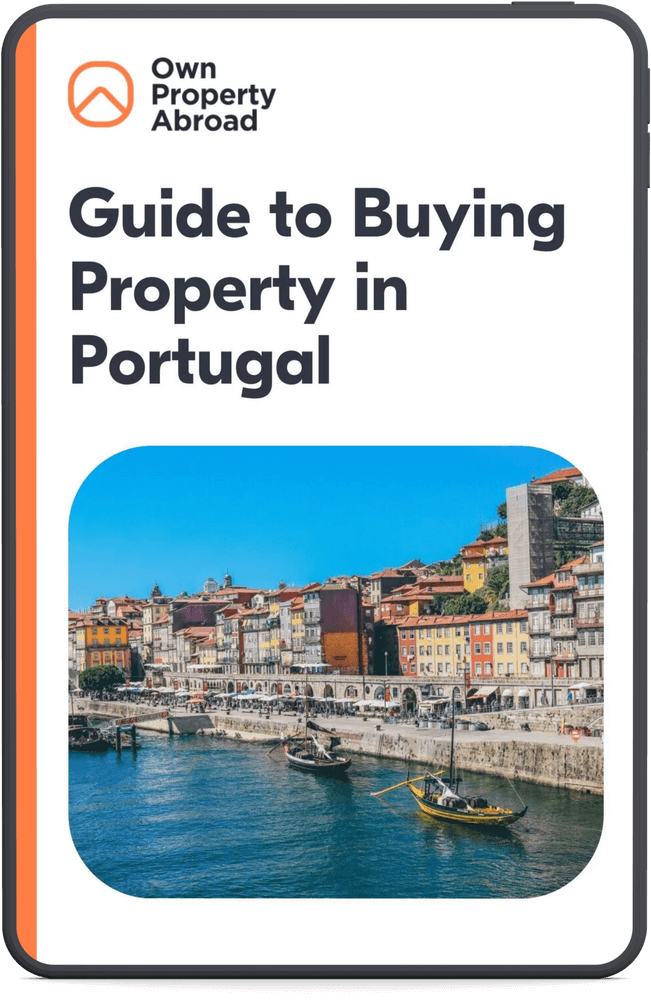What is the Deed of Purchase and Sale (Escritura de Compra e Venda)?
The Deed of Purchase and Sale, or Escritura de Compra e Venda, is a legal document that finalizes the transfer of ownership rights for a property in Portugal. It serves as proof of the agreement between the buyer and seller, outlining the terms and conditions of the transaction.
Valuable insights and practical advice, distilled from years of expertise and real-world experience.


Required documents for the buyer
Make sure that you have the following documents before signing the Deed of Purchase and Sale to ensure that the sale goes through:
- Valid passport
- Photo ID
- NIF (Numero de Identificacao Fiscal or Tax Identification Number)
- Proof of payment of taxes (Stamp Duty, IMT, IMI)
- Land registration certificate
You can start signing the Deed of Purchase and Sale only with these documents.
Buying property in Portugal in 4 steps
Signing the Deed of Purchase and Sale is just one step in buying property in Portugal. The four steps below explain more about the process of real estate transactions in Portugal.
Step 1: Obtain a NIF
The ability to purchase a property in Portugal is open to individuals of all nationalities. The sole requirement for signing the Deed of Purchase and Sale is a valid tax number (NIF) in Portugal. Obtaining a NIF number is free and accessible to both residents and non-residents. Foreign citizens must only present a valid passport, while EU nationals can provide an identity card from any EU member state as sufficient documentation.
Take the first step towards obtaining your Portuguese NIF by clicking the button below and completing the process online. For only $150, you can easily acquire your NIF and enjoy the benefits it offers.
Step 2: Finding a property
Finding the right property is the second step in buying a property in Portugal. It involves thorough research, exploring various listings, and consulting with real estate agents to identify options that align with your preferences and budget. Consider location, property type, amenities, and proximity to essential services, ensuring it meets your long-term needs and retirement or investment goals.
Step 3: Conduct due diligence
No matter where you are from, real estate transactions should best undergo due diligence to ensure their legality. Due to the extensive documentation and bureaucratic procedures involved in acquiring real estate, individuals should seek assistance from professionals such as lawyers and licensed real estate agents.
Step 4: Signing the Deed of Purchase and Sale
The formal requirement is to sign the Deed of Purchase and Sale before a notary or a public official, ensuring its authenticity and legality. Once the Deed of Purchase and Sale is signed, it establishes the buyer as the rightful owner of the property and solidifies their rights and responsibilities as in the agreement. When signing the Deed of Purchase and Sale, remember to register it with the land registry office to make it even more binding.
Buy property in Portugal with Own Property Abroad
Do you want to buy property in Portugal? Own Property Abroad can assist you and ensure a seamless and hassle-free property journey, whether selling or buying real estate in Portugal. Thanks to our knowledge and experience in the local market, we can help with legal requirements, finding suitable properties, negotiating the best deals, and signing the Deed of Purchase and Sale.
With our expert team, you won’t have to navigate the complexities of the Portuguese real estate market alone. For further information on how we can assist you, kindly drop your details below or email us at [email protected]. Let’s start working on your property success story today!
Valuable insights and practical advice, distilled from years of expertise and real-world experience.


Frequently Asked Questions (FAQs)
What is a deed in Portugal?
In Portugal, a deed refers to a legal document known as the Escritura. It is a formal agreement signed before a notary or public official that establishes the transfer of ownership rights for property and outlines the terms and conditions of the transaction.
How long does it take to close a house in Portugal?
The time it takes to close on a house can vary depending on various factors, including the complexity of the transaction, the due diligence process, and any potential legal requirements. On average, the process can take one to three months, but it’s important to note that this timeline is approximate and differs in individual cases.
What are the property laws in Portugal?
Property laws in Portugal allow foreigners to acquire real estate, whether for residency or investment purposes. It is advisable to consult legal professionals or relevant authorities for comprehensive and up-to-date information regarding specific property laws in Portugal.




